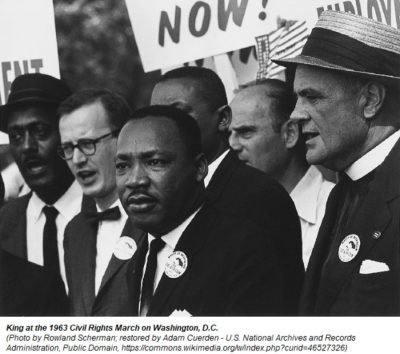The Root To Racial Healing in This Country Is To Listen, Learn, Engage
Celebrating the birthday of Dr. Martin Luther King, Jr. is a somber reminder of the work this country must do to address its truths, find ways to achieve racial healing, and transform society. Yes, I’m borrowing from this framework from the W.W. Kellogg Foundation which is funding TRHT – truth, racial healing, and transformation programs around the country. Dr. King would have loved to know that his work, his sacrifices, and his faith is still living on. TRHT’s philosophy aligns with King’s in that it “seeks to unearth and jettison the deeply held, and often unconscious, beliefs created by racism – the main one being the belief in a ‘hierarchy of human value.’
Unfortunately, there is a divisiveness in this country that accepts this ‘hierarchy’ when it is so far from the truth. What we know is that there are so many people – from all walks of life in this country – who are not letting the fears of the haters destroy King’s belief that it is about the character of a person not just the color of their skin. He constantly reminded us that we should “let no man pull us so low that we hate him.” What King would have reminded us is that deep down most people want to get along with others. It is the power of the majority who see the good of humanity and will combat the hate of the few. The not-so-veiled threats to our democracy over the past five years are stark reminders that we must not let the dark shadows of our nation’s past cloud our vision of promise and possibility.
To carry us forward, we must find the rays of hope that are quietly changing communities around us. In Dallas, over the past several years, the Communities Foundation of Texas has actively taken the lead in organizing conversations about the city’s tragic racial past. Just last week, a group of arts nonprofits in Fort Worth, Texas decided to renovate a former KKK headquarters into a symbol of anti-racism. How ironic that Fort Worth is just 30 minutes away from Southlake, now nationally known for fueling the backlash against school districts teaching about slavery, race, and cultural history in America. Yet another symbol of the paradoxical nature of America’s history.
During a visit to Cornell College in 1962, King demonstrated his sage wisdom and shared this painful truth that goes to the heart of how our communities and this nation can progress to symbolize how the world expects a democracy to function. “I am convinced that men hate each other because they fear each other,” King said. “They fear each other because they don’t know each other, and they don’t know each other because they don’t communicate with each other, and they don’t communicate with each other because they are separated from each other.”
Take time in 2024 to communicate with each other. Engage in active listening, learning, and engagement to better understand how together we can exceed King’s ideals – and the many others who have fought for racial equity and justice in this country.


